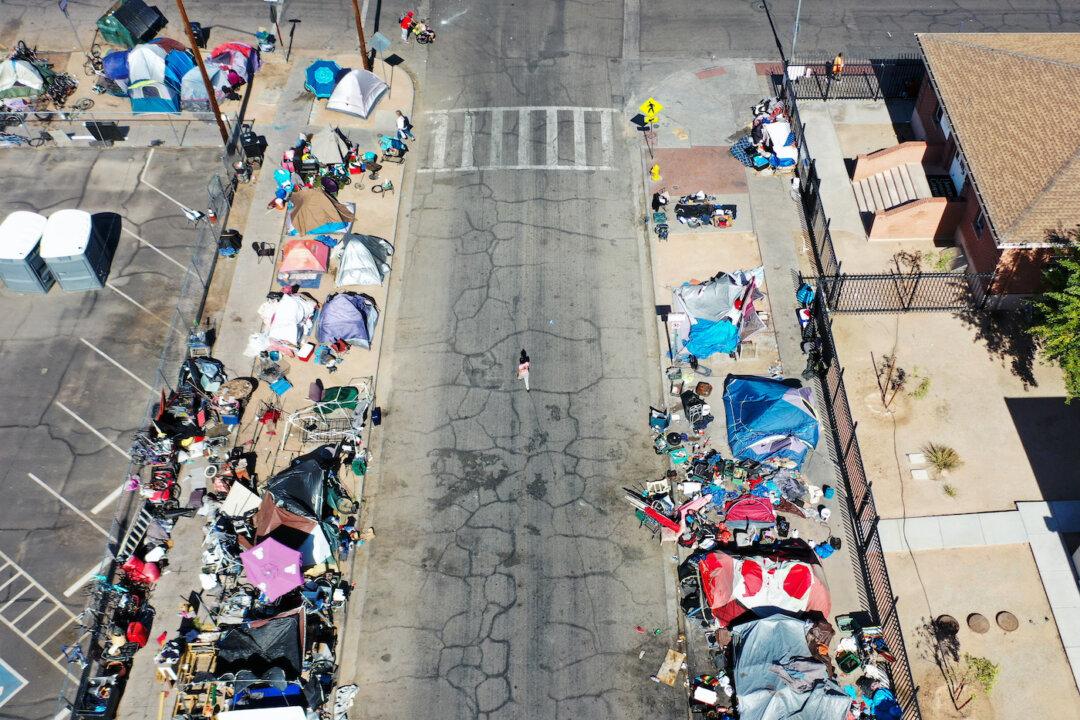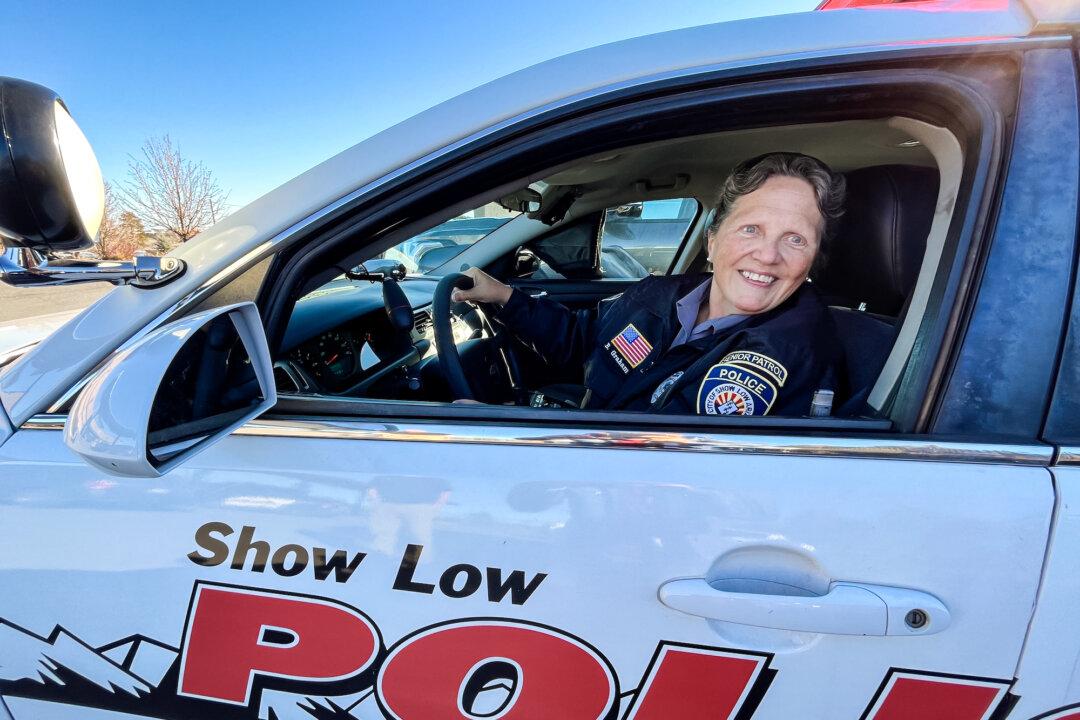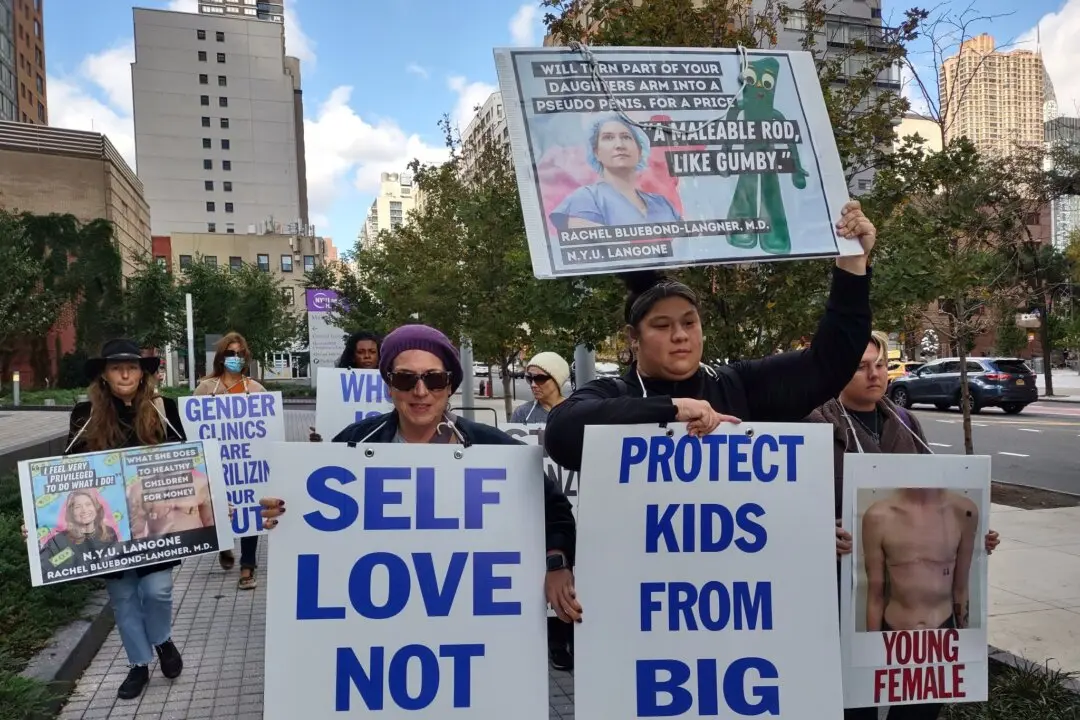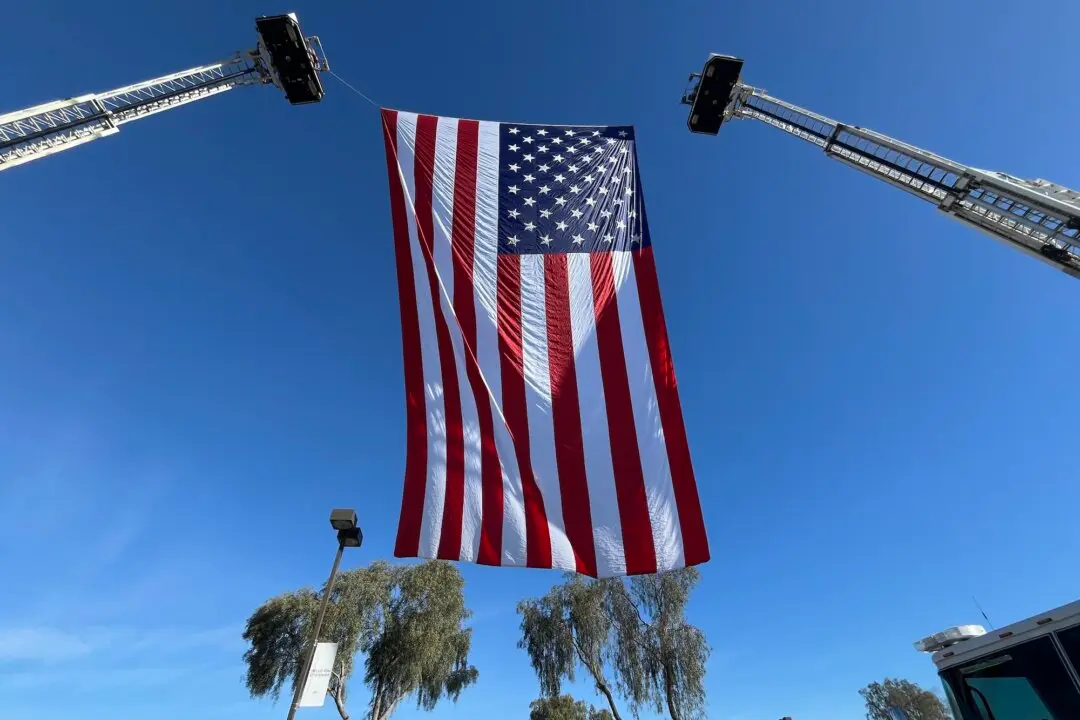PHOENIX—Never in all of Pam Bejarano’s 70 years could she imagine herself old and homeless in a place like “The Zone.”
As Bejarano tried to catch her breath in the stifling heat of downtown Phoenix, her fiance, James, 65, sat barefoot and shirtless in long white hair and beard, wearing summer shorts inside the couple’s frayed pup tent on 12th Avenue.





